The Best AI Agent Builders Platforms of 2026 (Top Picks)


AI agent builders help businesses create autonomous AI systems that automate workflows, manage conversations, integrate with tools, and improve operational efficiency without heavy development effort.
In 2026, top platforms like YourGPT, Vertex AI, LangChain, LlamaIndex, and Julep enable scalable, secure, and customizable AI agents that support measurable business outcomes.
AI agents help businesses manage tasks with greater efficiency, improve workflows, and deliver smarter customer interactions. They are now a practical way for companies to integrate intelligence into everyday operations.
The global AI market is projected to reach USD 815 billion by 2030, reflecting the steady growth of AI adoption across industries. AI agent platforms make this possible by enabling organisations to build customised applications without relying on specialised technical teams.
This article covers the top 5 AI agent builder platforms for 2026 and how they support businesses in achieving measurable outcomes.
AI agents are software tools designed to perform tasks independently or with minimal human intervention by interacting with their environment and users. These agents collect and analyze data to make decisions and complete tasks efficiently.
AI agents receive and parse inputs from various sources, such as API calls, database queries, or user interactions. This includes handling structured data, text prompts, and sometimes multimodal inputs like images or voice, depending on the agent’s capabilities.
The agent maintains relevant context throughout interactions, including conversation history, user preferences, and current task state. This helps ensure coherent and contextually appropriate responses.
Modern AI agents often integrate with external tools and APIs, allowing them to perform actions like searching databases, making calculations, or calling web services. The agent needs to understand tool capabilities, manage authentication, and handle errors appropriately.
Many advanced agents use techniques like Chain-of-Thought prompting or tree-based search to break down complex tasks into smaller steps. This helps them determine which tools to use and in what order to achieve given objectives.
Agents typically use different types of memory, including:
The agent processes results from its operations and generates appropriate outputs, which could include:
Critical components for production systems include:
These components are common in most AI agent systems, but their implementation can vary widely based on the platform or framework and use case.

AI agent builders are development frameworks and platforms that help create autonomous AI systems that can perform specific tasks or sequences of actions. They typically provide pre-built components and abstractions for common AI agent functionalities, such as working with language models, handling conversations, and managing tool usage.
These platforms often integrate with various data infrastructure components, including vector stores for semantic search, traditional databases for structured data, and memory systems for maintaining conversation context. However, the specific features and integrations vary significantly between different builder platforms.
For example, an e-commerce business might use an AI agent builder to create a customer service assistant that can respond to queries by accessing product catalogs, order histories, and common FAQ’s.
Selecting the right AI agent builder is essential for businesses looking to optimize operations and improve customer experiences. Here are the main factors to evaluate, along with examples to make the concepts clear:

Now, let’s take a closer look at the top 5 AI agent builders making an impact in 2026.

YourGPT AI is an AI-first no-code platform that helps businesses build and deploy custom AI agents for customer support, sales, and automation. It is designed to be accessible to non-technical users while also offering advanced options for teams that need more control.
Discover how YourGPT AI chatbot can streamline your customer service

Vertex AI is Google Cloud’s AI platform offering tools to build, deploy, and scale AI models, including conversational agents, with robust integration capabilities.

LangChain is an open-source framework designed for developing applications powered by language models, facilitating the creation of complex AI agents.

Llama Index is a framework that simplifies the process of connecting external data sources to language models, enhancing the functionality of AI agents.

Julep is an open-source platform that enables the creation, management, and deployment of AI-driven applications. Its features include stateful conversation management, support for diverse user-agent interaction models, and retrieval-augmented generation (RAG).
AI agents are software tools that perform tasks independently or with minimal human intervention. They interact with their environment, analyze data, and make decisions to complete tasks efficiently.
AI agent builders are platforms that help businesses create AI‑powered assistants without requiring advanced technical expertise. They provide pre‑built components for handling conversations, integrating with tools, and managing workflows.
AI agent builders are making it easier for businesses to automate workflows, improve customer interactions, and enhance productivity without needing large development teams. With AI adoption growing, these tools help companies stay competitive.
AI agent builders are becoming essential for businesses in 2026. These tools help companies automate tasks, improve workflows, and offer better customer service.
As businesses look for ways to save time and reduce costs, AI agents are a valuable solution. They allow companies to do more with less, even without needing technical experts.
When choosing an AI agent builder, focus on features like ease of use, integration with existing systems, security, and cost. Platforms like YourGPT Chatbot offer no-code options for simple setups, while others like Vertex AI and LangChain are better for businesses that need advanced features.
AI agent builders are not just about automation they help businesses become smarter and more efficient. Choosing the right platform will set businesses up for success in the future.
Join thousands of businesses transforming customer interactions with YourGPT AI
No credit card required • Full access • Limited time offer
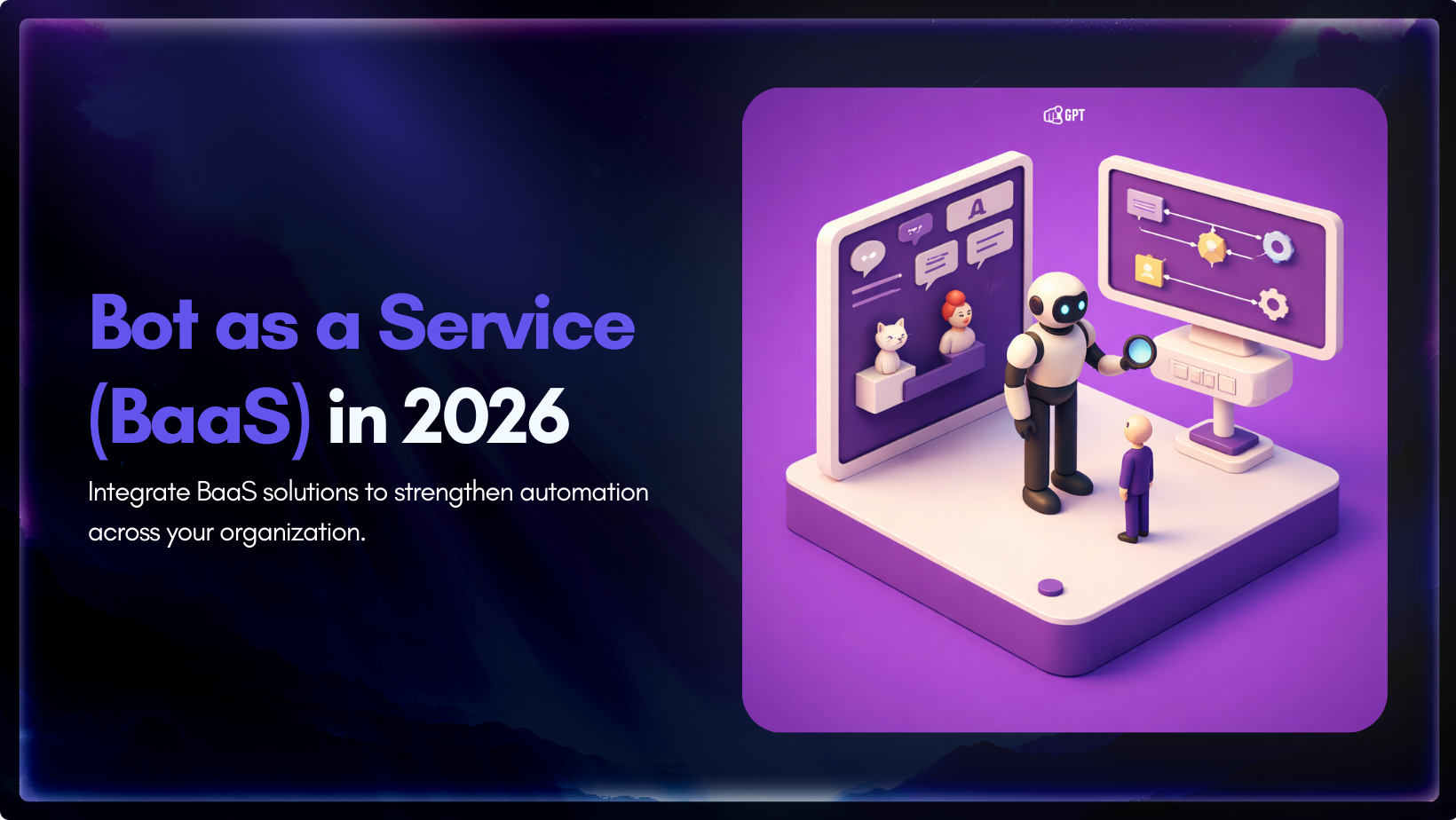
Automation defines how modern enterprises execute, respond, and grow. Customer conversations are handled by AI. Transactions move through automated workflows. Approvals route across departments without manual follow-ups. In high-performing organizations, intelligent systems are embedded directly into revenue operations, service delivery, finance, and internal support. Investment trends confirm this shift. The global conversational AI market surpassed […]

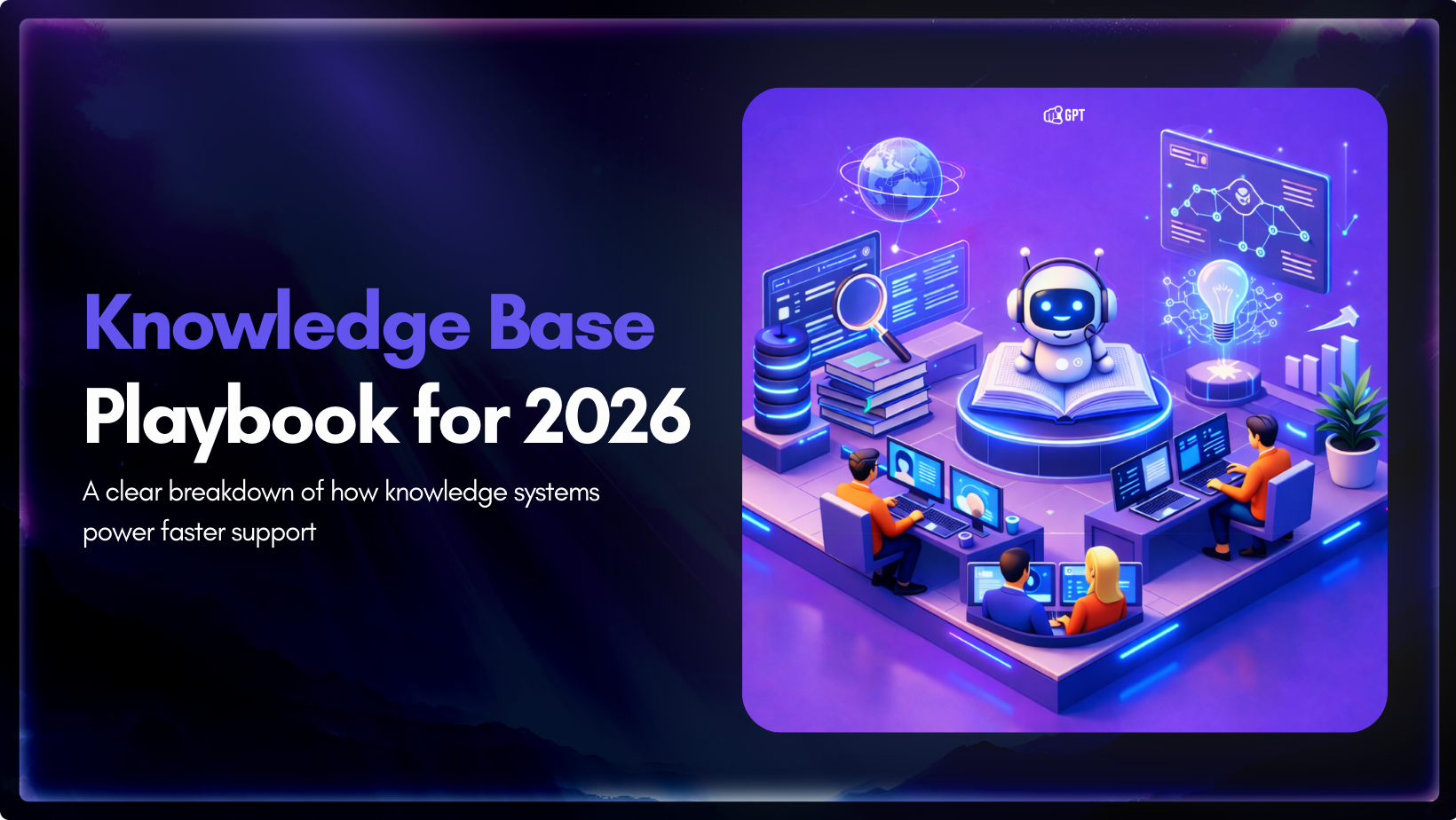
Access to clear, accurate information now sits at the center of customer experience and internal operations. People search first when setting up products, reviewing policies, or resolving issues, making structured knowledge essential for fast, consistent answers. A knowledge base organizes repeatable information such as guides, workflows, documentation, and policies into a searchable system that supports […]

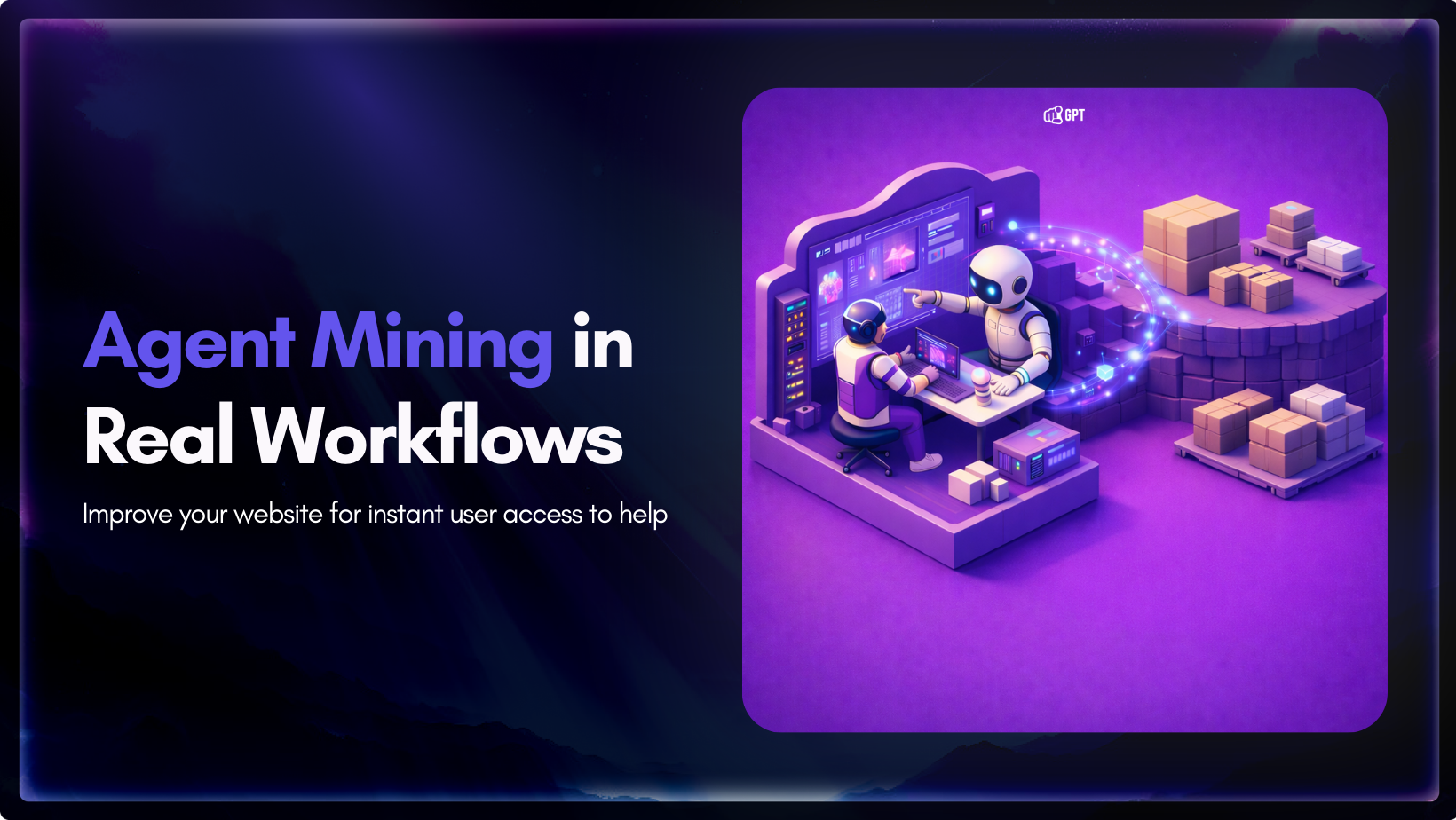
TL;DR Agent mining shifts AI from answering questions to executing real work across systems through controlled, repeatable workflows with verification. By automating repetitive operations with guardrails and observability, agents reduce friction, improve consistency, and let humans focus on decisions and edge cases. For a decade, AI was mostly framed as something that answers. It explains, […]

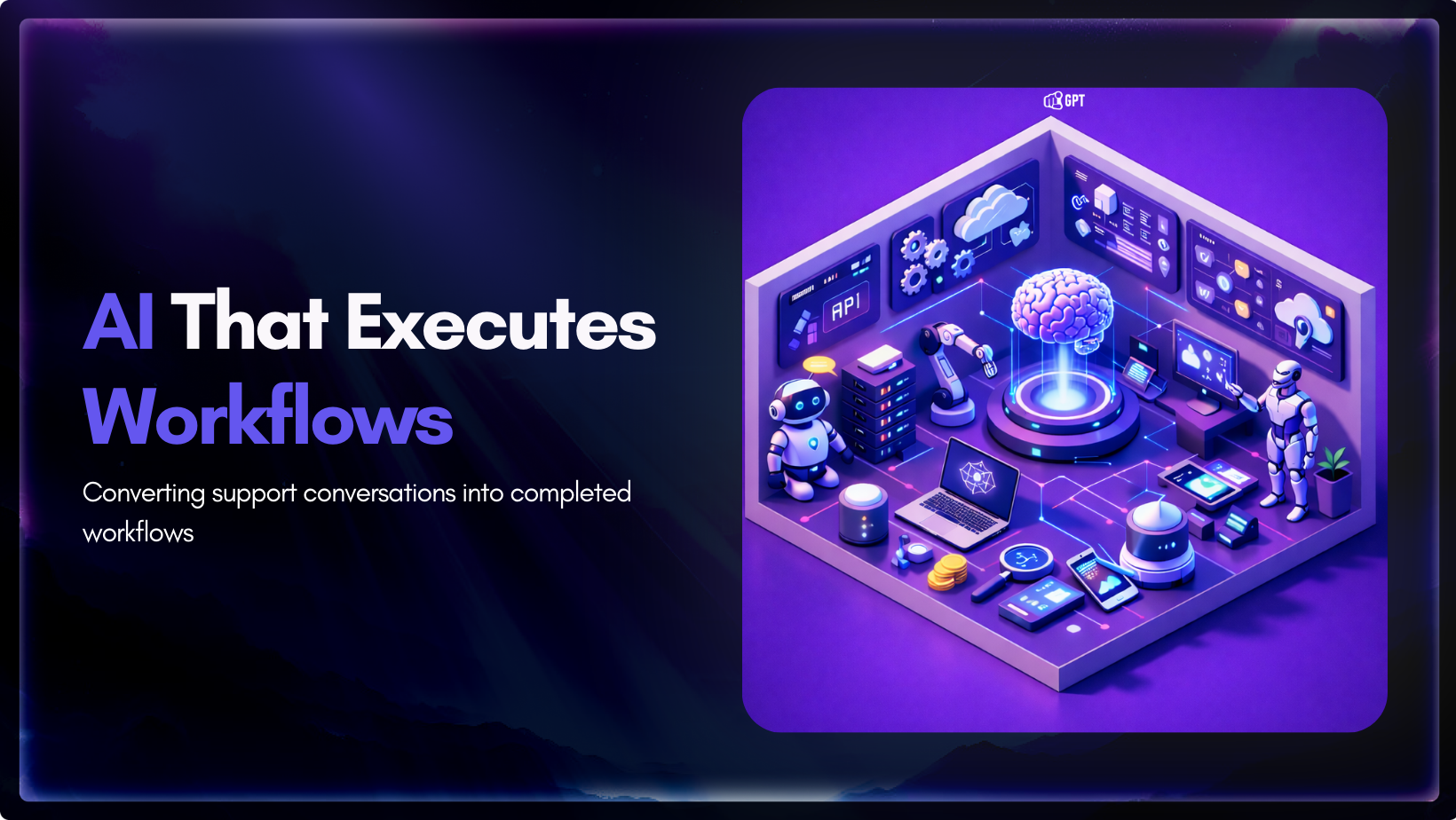
Say “AI” and most people still think ChatGPT. A chat interface where you type a question and get an answer back. Fast, helpful, sometimes impressive. Three years after ChatGPT went viral, surveys show that’s still how most people think about AI. For many, ChatGPT isn’t just an example of AI. It is AI. The entire […]

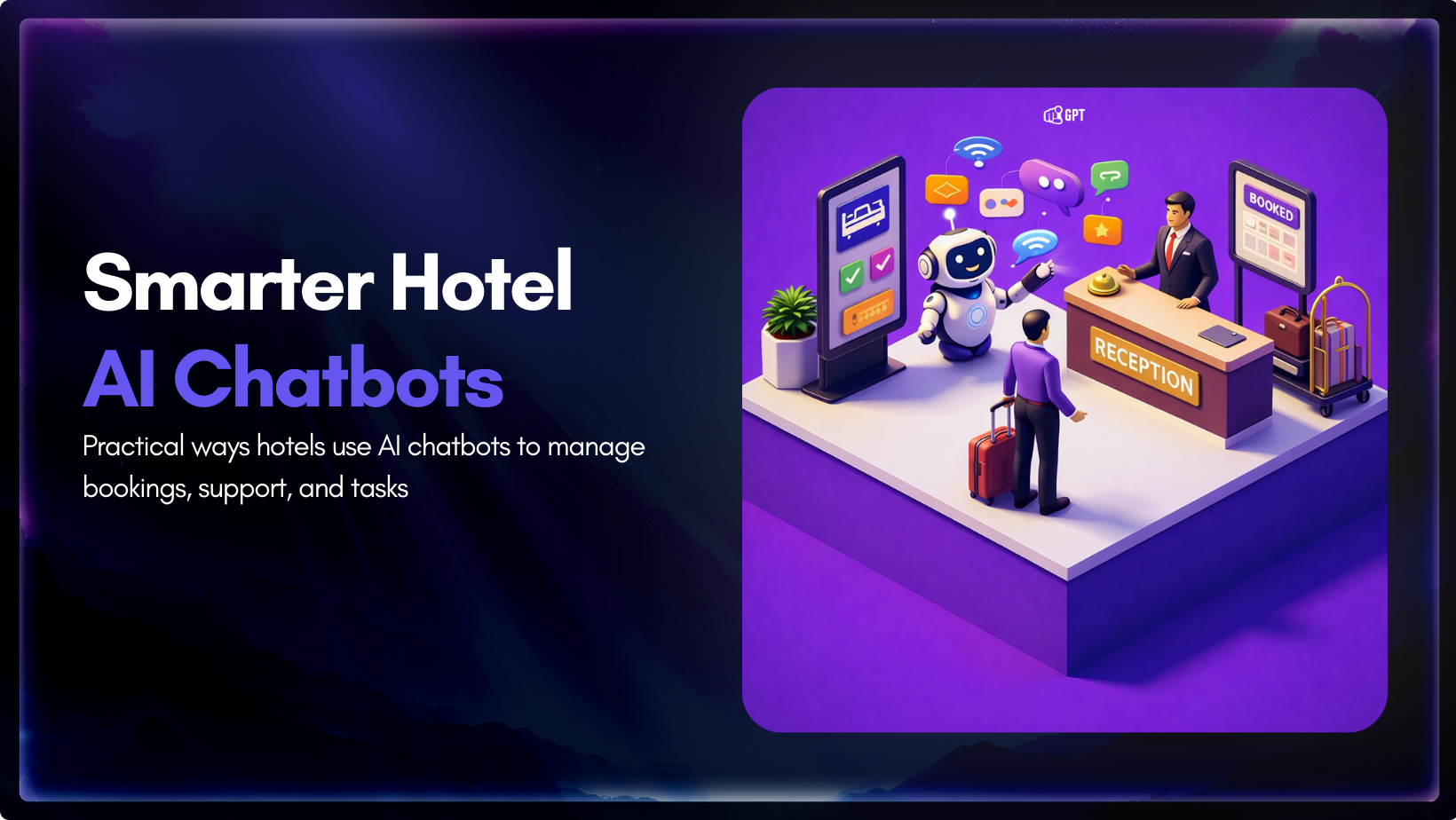
Hotel guests don’t wait for business hours to ask questions. They message whenever it’s convenient for them, which is usually when your staff aren’t available to respond. If they don’t hear back quickly, they book elsewhere. The requests themselves are rarely complicated. Guests want to know about availability, check-in procedures, whether pets are allowed, or […]

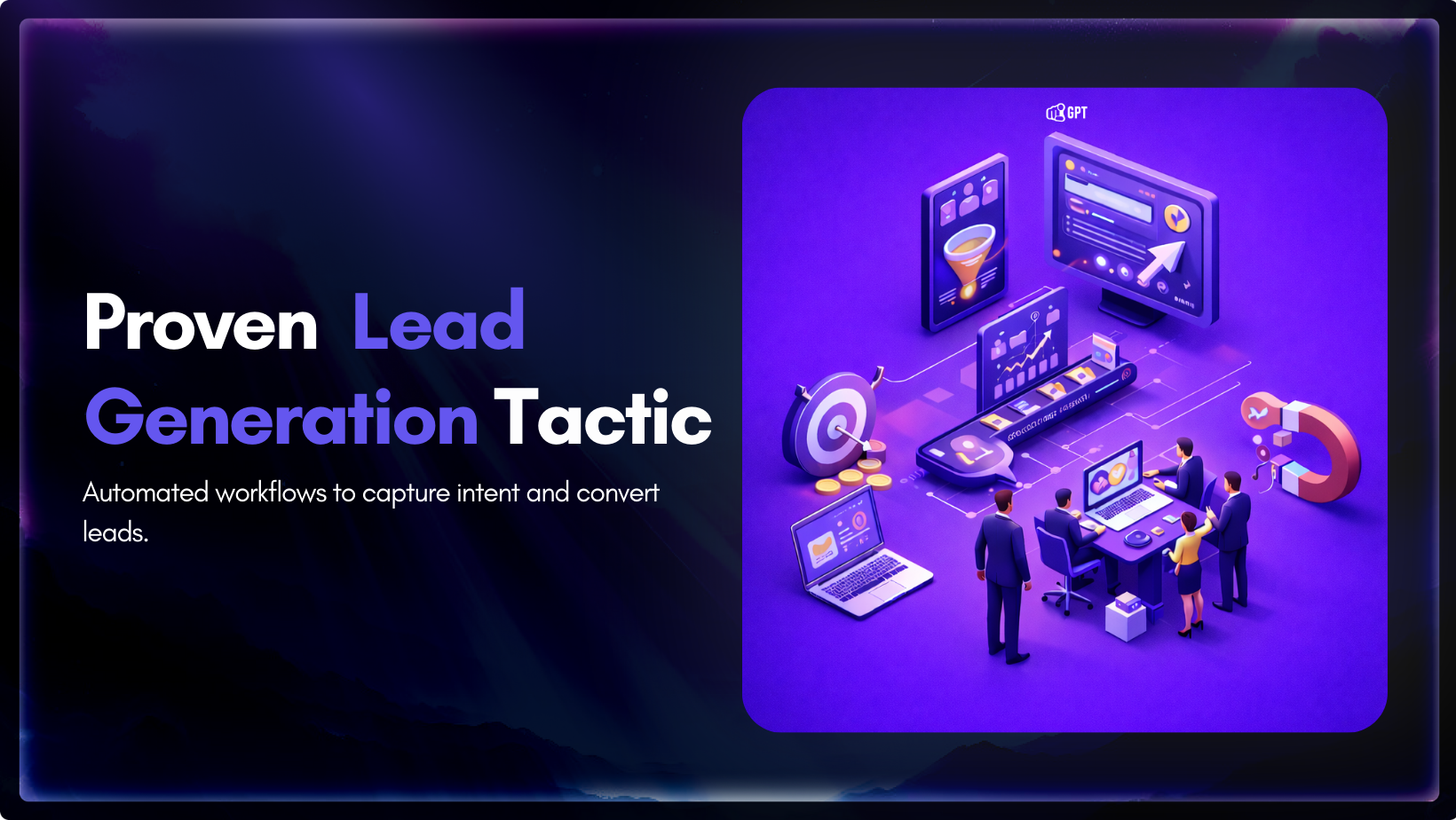
TL;DR Lead generation in 2026 works best with a multi-channel system, not isolated tactics. This blog covers 18 proven strategies and 12 optimizations used by top teams. You will learn how to combine AI, outbound, content, and community to build predictable lead flow at any scale. Lead generation is the lifeblood of every business. Without […]
